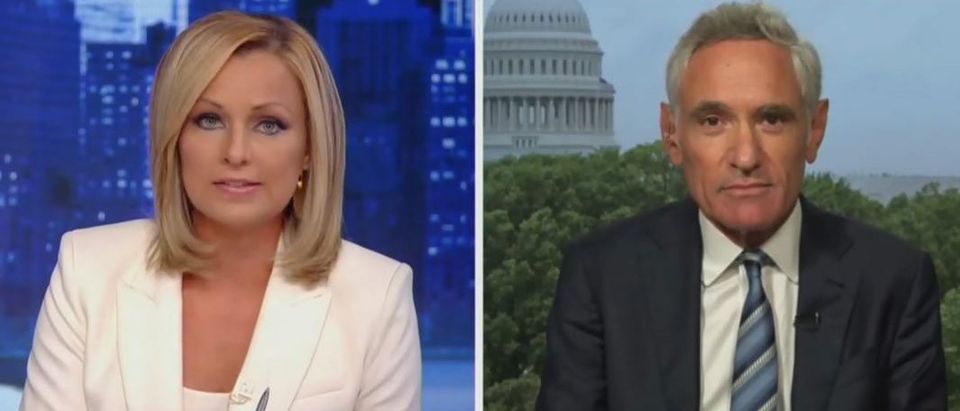Dr. Scott Atlas told Fox News’ “The Story” Monday night that stopping cases “is not the appropriate goal” in combating coronavirus.
As many areas of the country have experienced a surge in cases, particularly among younger people of late, most epidemiologists and politicians have focused on measures meant to curb case spread like lockdowns, social distancing measures and masking.
Atlas, former chief of neuroradiology at Stanford University Medical Center and a senior fellow at Stanford’s Hoover Institution, has argued for a different approach, protecting the higher-risk populations and allowing the virus to burn through people to whom it poses less of a risk.
“I think there is a huge disconnect here in what the goal of public policy is here,” Atlas told guest-anchor Sandra Smith during a conversation about protective measures for college students. “The goal of stopping COVID-19 cases is not the appropriate goal. The goal is simply twofold, to protect the people who are going to have a serious problem or die, that’s the high-risk population, and to stop hospital overcrowding. There should never be and there is no goal to stop college students from getting an infection they have no problem with.”
=WATCH:
“99.8% of deaths are in people over 24,” Atlas argued before explaining that high-risk college students and professors can be protected through social distancing accommodations.
“They can do things if they are still afraid from a distance but you don’t lock down healthy people,” he said. “It’s just irrational, really.”
Atlas argued against “creating a frenzy for tests” among college students when the purpose of testing should be “to protect the high-risk group from getting infected.” (RELATED: ‘Population Immunity’: Dr. Atlas Explains Why We Shouldn’t Freak Out About The Spike In COVID-19 Cases)
When Smith pushed back by asking about asymptomatic spread to the vulnerable from students, Atlas said that devoting resources strategically is “the way to protect them,” arguing again that mass testing “destroys the ability to get critical information on the tests from the people who are at high risk.”
“We need to keep them safe,” he explained. “When we have testing delays because we are doing a million tests every day, it’s getting to be crazy already. We need to be able to get the results from the high-risk tests. No one else.”


